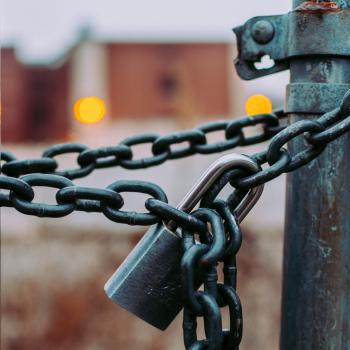An old fashioned term for the process of buying a property in foreclosure, buying a house on the courthouse steps is a way to get a real deal on a house–or to get into real trouble.
The foreclosure process
Foreclosure is actually a multi-step process that begins with “pre-foreclosure”. That’s the period of time after the mortgage/deed of trust first goes into default.
At that time, the lender begins the legal process that initiates foreclosure on the property. This includes filing the legal paperwork necessary and filing a notice of intent with the court. The lender is also required to place an announcement of the impending foreclosure in the local newspaper (under legal notices), generally for a specific period of time.
If you are interested in a property, this will give you time to do your research on it. Once the waiting period is over, the process can move very quickly!
Once the legally required steps have been completed, the lender can then put the property up for sale in a public auction. How long that process takes depends on the laws in each state.
The courthouse steps
The auctions take place at the county courthouse of the county in which the foreclosed property is located. It occurs on specified days of each month. The auction could be well attended, lightly attended, or you might find yourself as the only one there. If that’s the case, it could mean that the property isn’t widely viewed as a bargain (for price or condition) and you will need to beware.
The lender can specify a “reserve price”, which is the minimum they will accept to transfer the property. This will cover the lenders exposure in the property or at least minimize it if the property is likely to sell below the outstanding loan amount.
State law may provide for bidding to begin in advance of the auction to give first time home buyers a chance to bid on the property. If their offer is accepted by the lender, the auction will be canceled.
Bids can be either written or called out.
You must come with certified funds, or other means of payment specified by the court, on auction day and be ready to complete the purchase immediately. Unlike regular real estate transactions, there is no escrow period between the time you sign an offer and close the sale.
If the property receives no bids, the lender will take the property back. It is then classified as “REO”, or real estate owned by the lender that the lender will sell at a later date.
The specific process varies from state to state so it’s best that you check the specific procedures and requirements from trusted local sources.
Foreclosure property risks
From a buyer standpoint, the foreclosure is pretty simple and has potential for great rewards. But there are risks you need to keep in mind.
Bidding wars. Auctions can create bidding wars! If that happens, it’s possible that the price can be run up to actual market price or even above. One or more bidders who want to buy the property as a personal residence may be locked on the property and not too concerned with resale value. Know the market value of the property, adjust for condition and anticipated profit, and don’t ever bid higher than your pre-determined maximum price.
Property condition. An inherent problem with foreclosures is that you generally won’t be able to do a home inspection. Occupants tend to stay in foreclosed properties until (and after) the last minute, and won’t let you in to inspect. As well, the property could have major structural issues that will be your problem after you buy the house. You’ll be buying sight unseen! Do a drive by inspection, look closely at the exterior and the property itself for clues. If it’s a wreck on the outside it probably is on the inside. Foreclosed owners sometimes destroy the house intentionally.
Title issues. Never assume that the mortgage is the only lien on a property. If the house is in foreclosure, there are probably other liens as well. Order a title search on any property you are seriously interested in that way you’ll know what you’ll be getting into.
Previous owners who won‘t vacate. The previous owners of the house may not leave after you buy their house. You may need to use legal action to have them removed, at your own expense. As an alternative, either bid only on properties known to be unoccupied, or be ready to offer a cash incentive for the previous owners to leave.
Financing can be a problem. Mortgage lenders have standards that don’t usually fit well with foreclosure properties. When you buy a foreclosure, you take it “as is”; the lender will usually want certain items repaired, and that’s not going to happen. Lenders will also be concerned if you’re buying the house for investment, or worse, to flip for a profit quickly. Buying foreclosures probably won’t work if you need to get a mortgage. Pay cash, or partner with people who can.
Post foreclosure issues. Some states allow a waiting period after an auction sale, during which the previous owner can buy back the property if they can match the highest bid. If you live in one of these states, you could win the bid and still not get the house.
Buying foreclosures can be enormously profitable. But as you can see, the potential to overpay for the property, to encounter major repair costs or to get into legal entanglements is real. Proceed with caution!
Have you had experience in buying foreclosures?















